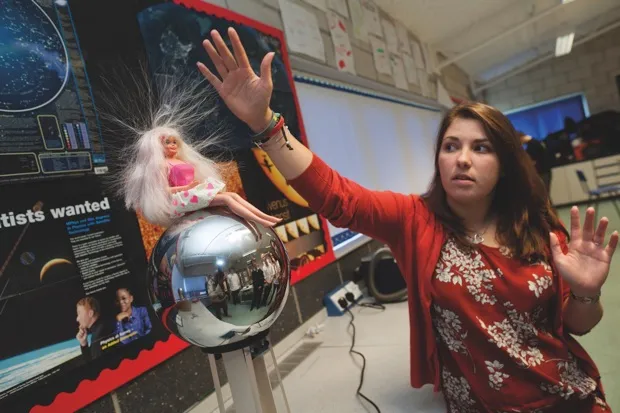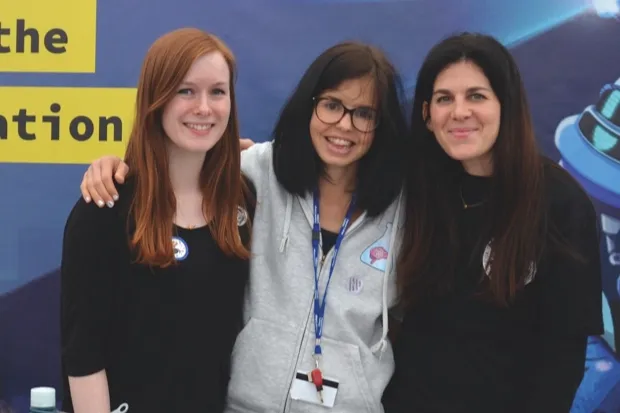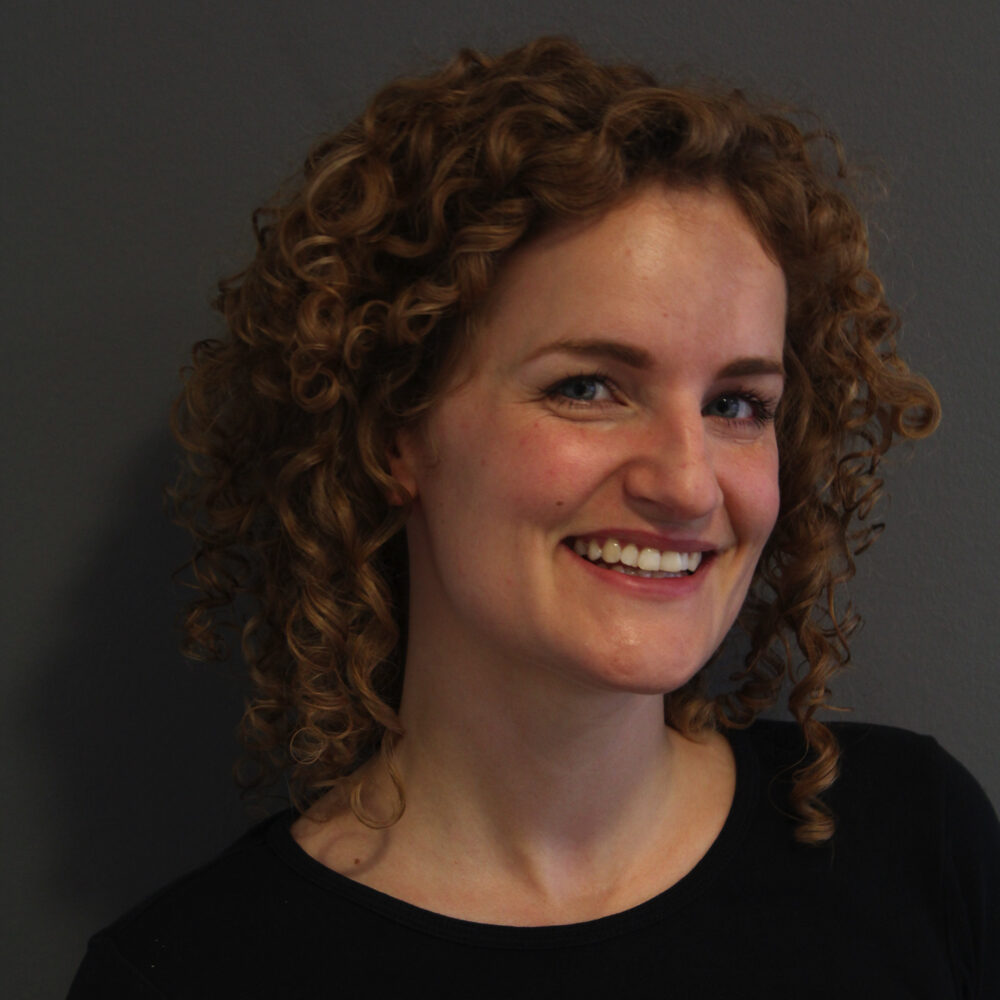Around 40,000 jobs in STEM – that’s science, technology, engineering and maths – are left vacant in the UK each year. To make matters worse, women in science-based jobs are leaving, frustrated with sexism, bias and the lack of opportunities for progression.
It’s going to be difficult to replace these women in the years to come because fewer girls than boys are studying core sciences at schools, colleges and universities. At A-level, just 19 per cent of girls choose two STEM subjects, compared to 33 per cent of boys. Maths and physics fare particularly poorly: last year 59,270 boys took A-level maths, compared to 38,357 girls; and 29,422 boys took physics, compared to 8,384 girls.
For International Day of Women and Girls in Science 2019, we wanted find out exactly what it is that’s putting girls off studying some of these subjects, and what can be done to stop them turning away.
We surveyed around 100 readers of Girl Talk, a magazine with a readership of girls aged 7 to 11, to find out what they think about their science lessons. We also sent out surveys to over 1,000 11- to 14-year-olds to find out about their most and least favourite school subjects, their heroes and their career aspirations. Finally, we sent questionnaires to nearly 2,000 adults asking them to look back at the careers advice they received at school.
The results were revealing. When we asked the 11- to 14-year-olds to pick their favourite three subjects, we found a marked difference between the genders: for the girls, art came out on top, with English and drama joint second. For the boys, information and communication technology (ICT)/computing nabbed the top spot, with PE and maths coming in close behind. When we asked the interviewees why these subjects were their favourites, 38 per cent of girls (compared to 28 per cent of boys) responded with ‘I like the teacher’.
Previous research carried out by the Institute of Physics has shown the enormous importance of teachers for girls’ aspirations. “Girls have learnt to be more cautious,” says Beth Bramley, gender balance manager at the Institute of Physics. “Girls respond better to being encouraged, teachers having belief in them and showing enthusiasm for the subject – more so than the gender of their teacher.”
The turning point
Yet at a younger age, the girls we surveyed really enjoyed science, especially the experiments, so there’s something happening around the time girls are entering secondary school that’s turning them off the subject. According to Bramley, they could be getting sidelined when it comes doing the fun stuff. “With science experiments, if you let young people have free rein, then the boys get to do the hands-on experiment, and the girls take a step back and write stuff up,” she says.
But she says there are quick ways to fix this problem. In group work, teachers can assign the students particular roles, for example one student might be a scribe and another one might be in charge of a particular piece of apparatus. These roles can then be rotated for each lesson, so that everyone has an opportunity to do everything. There is evidence that once that girl has had a hands-on, leadership role a couple of times, she becomes more confident in carrying out the tasks it involves.

And that confidence is a key part of encouraging more girls into the sciences. Due to unconscious bias, sexism and various gender stereotypes, girls are more likely than boys to think that they aren’t good enough to pursue subjects such as maths and physics to A-level, seeing them as only for the super-smart.
“There is [also] the stereotype threat of who will be in that class,” says Bramley. “If you’ve done very well in physics, you’ve usually done very well in English, French and history. And maybe all your friends are doing history and French, so it’s those moments, where even if you’ve achieved [the necessary good grades], you don’t see yourself as being on a pathway that could lead to you becoming a scientist.”
At a time when hormones are raging, tempers are volatile and friendship groups are fickle, it can be hard for youngsters to make tough decisions about which subjects to choose. In fact, there’s a growing body of research that shows teenage brains are different from adult brains. “Different parts of the brain develop at different rates, and during adolescence the parts of the brain relating to social reward are more highly developed than the parts of the brain involved in problem-solving, planning and decision-making,” says clinical psychologist Dr Lucy Maddox.
This makes sense. Teenagers are keen to fit in and no one wants to be called a swot, so there may be a temptation to take subjects that have an ‘easier’ reputation. Perhaps they might fare better if we allowed them to keep their options open for longer, by letting them study a broader range of subjects. Especially if their brains aren’t quite ready to be making choices that will affect the rest of their lives.
Careers advice
Yet despite teenagers’ keenness for independence, they are not averse to asking for advice: three-quarters of our respondents told us they listened to their parents’ guidance about school and careers, and half said they paid attention to teachers. While it’s encouraging that they are willing to listen to input from adults, it also means that when a careers advisor tells you that your ideal job would be as a bricklayer, that advice – even if well-intentioned – could lead you down a path that you end up regretting in later life.
Case in point: BBC Focus editor Daniel Bennett was told that he should be a landscape gardener… readers of this magazine will be relieved to hear he didn’t follow that advice, as his skill set is better matched to editing than gardening (although I have been impressed with his ability to keep the pot plant on his desk alive for the last six months).
Speaking of careers, the top choices among 11- to 14-year-old girls were teacher, medical roles and vet/zookeeper. This fits in with research from the Campaign for Science and Engineering, which found that parents were keen for their daughters to be teachers, doctors and nurses, but wanted their sons to be engineers, scientists and tradesmen.
Yet even if the girls genuinely did want to follow those career paths, then favourite subjects of art, English and drama would not be as useful as core STEM subjects in helping them reach those goals.
Something here doesn’t add up. Certainly, when we interviewed the adults, over half said their careers advice at school had been poor, with just 12 per cent rating it as good. Around one in five respondents said they were not satisfied with the further education choice they made, while more than one-third agreed that better advice would have altered the career path they followed. That’s an enormous number of adults who are going to work every day, feeling dissatisfied, and watching the minutes tick slowly by until they can go home.

But is careers advice better today? That’s up for debate. In 2015, the UK government set up the Careers & Enterprise Company (CEC) in order to help pupils achieve their career goals. Then in December 2017, a new government careers strategy was unveiled that said schools needed to meet a gold standard of eight ‘Gatsby benchmarks’, to provide the best careers provision in schools and colleges, which the CEC would help schools achieve.
Those benchmarks are: a stable careers programme; learning from career and labour market information; addressing the needs of each pupil; linking curriculum learning to careers; encounters with employers and employees; experiences of workplaces; encounters with further and higher education; personal guidance. Yet according to the CEC’s 2018 report, on average schools are achieving just two of the eight benchmarks, and 18 per cent of schools are not achieving any at all.
Better future
It’s not all bad news, though. Recently, a study called The Drayson Pilot, spearheaded by the Institute of Physics, combined three strands of research to see if girls’ experiences of physics could be improved:
- The first strand worked on girls’ confidence, introducing them to extracurricular clubs and external speakers.
- The second strand looked at inclusive teaching and unconscious bias, and showed students a wide range of physicists. It also introduced students to the relevance of physics for future career paths.
- The third strand was a whole school approach, involving teachers and parents. By bringing those three stands together across six schools over two years, the number of girls taking AS-level physics more than trebled.
“It shows that schools do have a role to play and can do something positive,” says Bramley. “Projects like this show that where there are structures in place, they can have a massive impact on the choices young people are making.”
The positive news doesn’t end there though. The Gender Action Award, a gender equality accolade for schools, has recently been launched by King’s College London, University College London, the Council of Modern Languages and the Institute of Physics. It takes a look at culture change in schools designed to tackle gender stereotyping and bias, and asks schools to upload evidence so they can be assessed and awarded accordingly.
It has received funding from the Mayor of London and this year will be rolled out to primary and secondary schools in the capital. A national rollout is planned for 2020. This takes us one step closer to a world in which youngsters are free to choose the subjects and careers they wish, without having to worry about the burden of gender expectations.
“Whether it’s materials, ecosystems or our bodies, science is about asking questions of the world around us – and we need as many voices as possible pushing the limits of our understanding,” says campaigner and physicist Dr Jess Wade. “The most exciting and successful scientific research happens when people from different disciplines, with different backgrounds, from different parts of the world work together. If we want science to benefit the whole of society, everyone needs to be able to contribute to the discussion.”
This is an extract from issue 332 of BBC Focus magazine.
Subscribe and get the full article delivered to your door, or download the BBC Focus app to read it on your smartphone or tablet. Find out more
Follow Science Focus onTwitter,Facebook, Instagramand Flipboard
